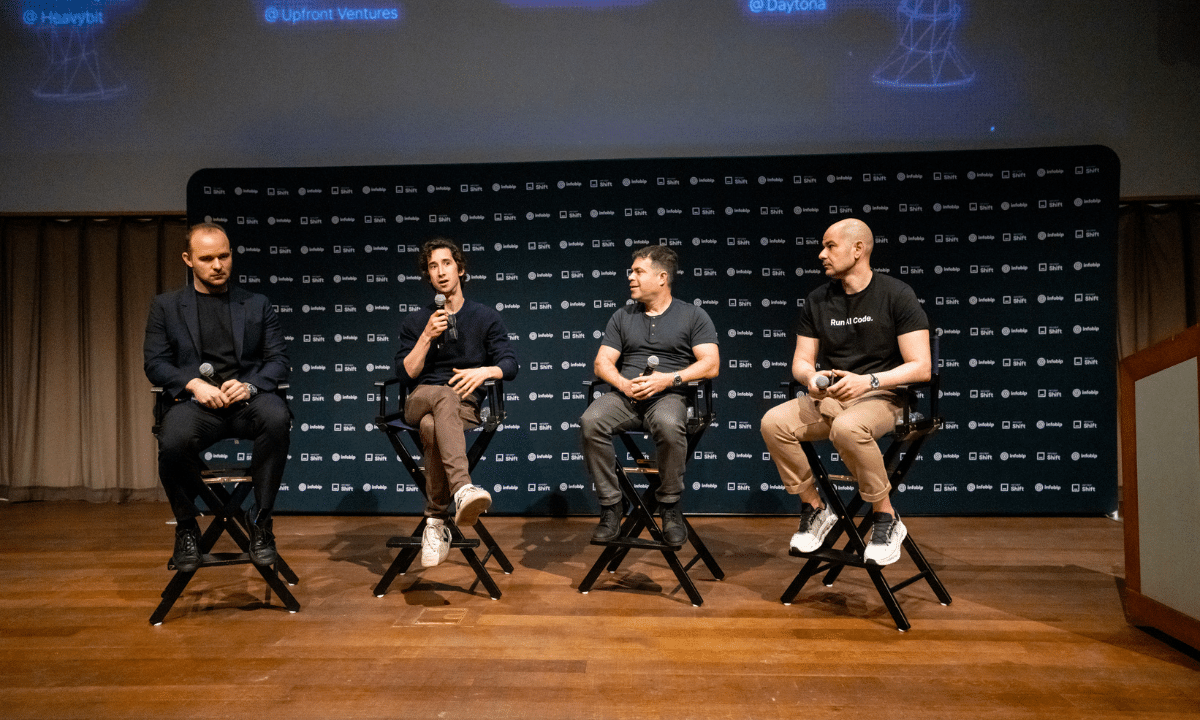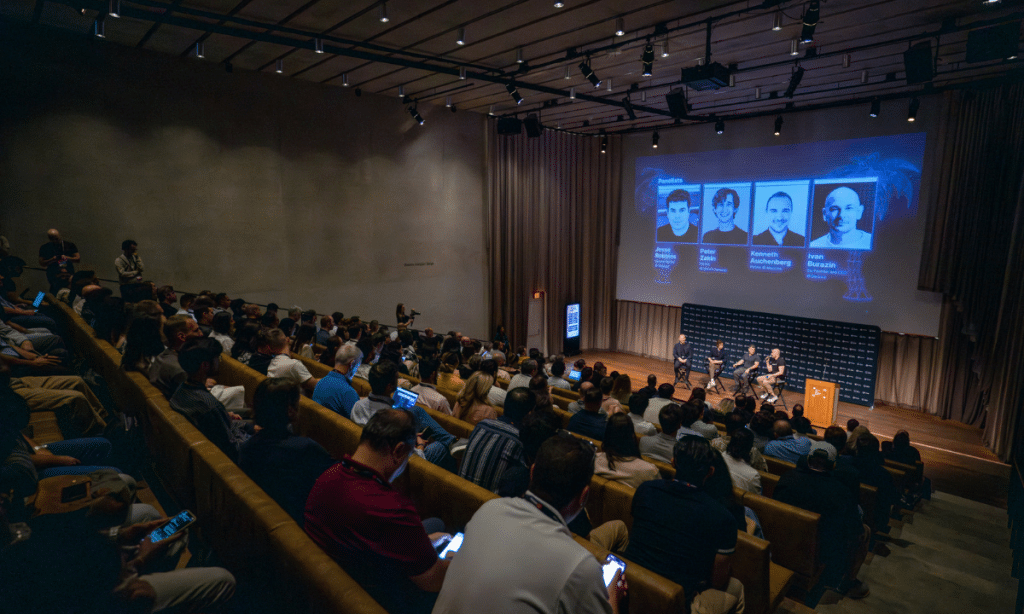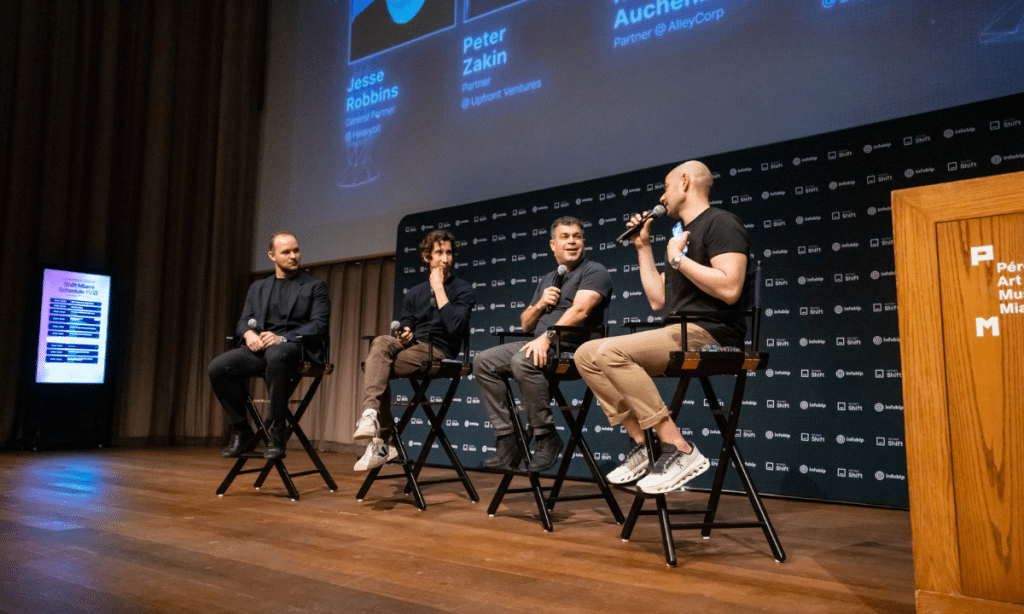The Future of Dev Tools is Autonomous, Engineers Will Become Fleet Generals


The development environment is undergoing a radical shift at the intersection of software engineering and AI. No longer just about writing clean code, developer experience today is about crafting systems that collaborate with humans and increasingly with AI agents.
This was the central theme of a panel conversation titled “Investing in Dev Tools in the Age of AI” that featured Jesse Robbins (Heavybit), Peter Zakin (Codeium), Kenneth Auchenberg (AlleyCorp), and Ivan Burazin (Daytona) at the Infobip Shift Miami conference.
Speakers first reflected on how developer experience has evolved—from desktop to mobile, from static tools to dynamic, collaborative environments. But as Jesse put it, we’re now entering a new phase where delegation is the new automation.
Traditionally, improving developer experience meant offering excellent documentation, strong community support, clear APIs, and plenty of example code. But today, that’s not enough, Jesse points out:
If you’re building software now, you’re not just designing for humans. You’re designing for agents, too. And they need the same things—documentation, context, and clarity of intent.
Jesse compared the rise of autonomous agents in dev workflows to a new kind of SEO, where developers optimize their tools for discoverability and cooperation with AI agents. Whether it’s delegating tasks, workflows, or entire design processes, success now depends on how well tools can communicate their purpose to humans and machines alike.

Engineers as Fleet Generals
This shift is redefining what it means to be a developer. Kenneth described it in striking terms:
We’re all going from being software engineers writing code to model operators—code composers. It’s like being an art director, hovering over the shoulder of your agents.
He likened the future of development to managing a “fleet” of AI workers, where engineers must learn to orchestrate, debug, and direct multiple agents:
Every engineer is becoming a fleet general. You’re not just an IC anymore—managing autonomous contributors.
That may sound intimidating, but Peter argued that humans will continue to play a central, even irreplaceable role:
What remains when AI removes all the toil—the boring work? Humans are still responsible for the labor. We’re the backstop. We’re the audit log. And that’s not going away.
As the panelists agreed, there’s an emerging class of problems—ethics, oversight, accountability—that only humans can solve. Responsibility remains a human job even in a world run by autonomous agents.
Cursor, Windsurf, and the Agent Race
The latter part of the discussion focused on recent AI-native tools that are transforming the developer landscape—Cursor and Windsurf. Cursor, an enhanced version of VS Code utilizing AI agents, is now valued at $9 billion.
Windsurf, a similar tool, was just acquired by OpenAI for $3 billion. These figures raised a provocative question often heard in investor conversations: “What if AWS or Microsoft builds this?”
Kenneth, who was part of the original 12-person VS Code team, had a candid response:
Cursor and Windsurf aren’t really in the business of building a code editor. They’re using the VS Code base as a shipping vehicle. The real innovation is the agent.
Building an editor like VS Code from scratch is a massive endeavor, one only a few tech giants could undertake. But the opportunity now lies in building the best agent experience on top of that infrastructure, Kenneth points out:
We’re moving toward an agentic future where everyone will have agents on their engineering team. That’s the business. That’s the value.
This paradigm shift means the next battle in dev tools isn’t about IDEs—it’s about who builds the most effective co-pilot.

Open Source as the Foundation
Jesse pointed to the importance of the open-source ecosystem in enabling this transition. He’s an investor in Continue, an open-source plugin integrating VS Code and JetBrains tools to bring AI into developers’ everyday workflows:
Because of this open-source ecosystem, I started writing code again. It felt joyful. This moment in time makes that possible. You get prompted, and you learn.
It’s what I remember loving about development. Experiencing joy in collaborating with tools instead of fighting them may be the most important change of all.
The developer landscape is undergoing a seismic shift, driven not only by breakthroughs in AI but also by developers’ changing roles. Whether through tools like Cursor and Windsurf or evolving team dynamics that blend engineering with product thinking, the panelists painted a future where developers are not just builders but strategic decision-makers.
In an era where AI is both collaborator and competitor, the key challenge remains: staying adaptable, curious, and aligned with long-term value, regardless of whether you’re coding the next billion-dollar product or redefining what it means to build software.


